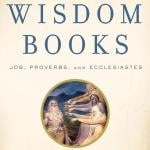Sedulius Scottus (On Christian Rulers, 66-7) offers this lyrical description of the beauty of good rule: “There are seven things more beautiful than God’s other creations, as wise men say: the cloudless sky, when it marvelously resembles the color of silver; the sun in its brilliance, when in its orbit it illumines the world’s inhabitants with its glorious splendor; the moon in its fullness with its face uncovered by the retreating clouds, when in its proper course it follows in... Read more




















